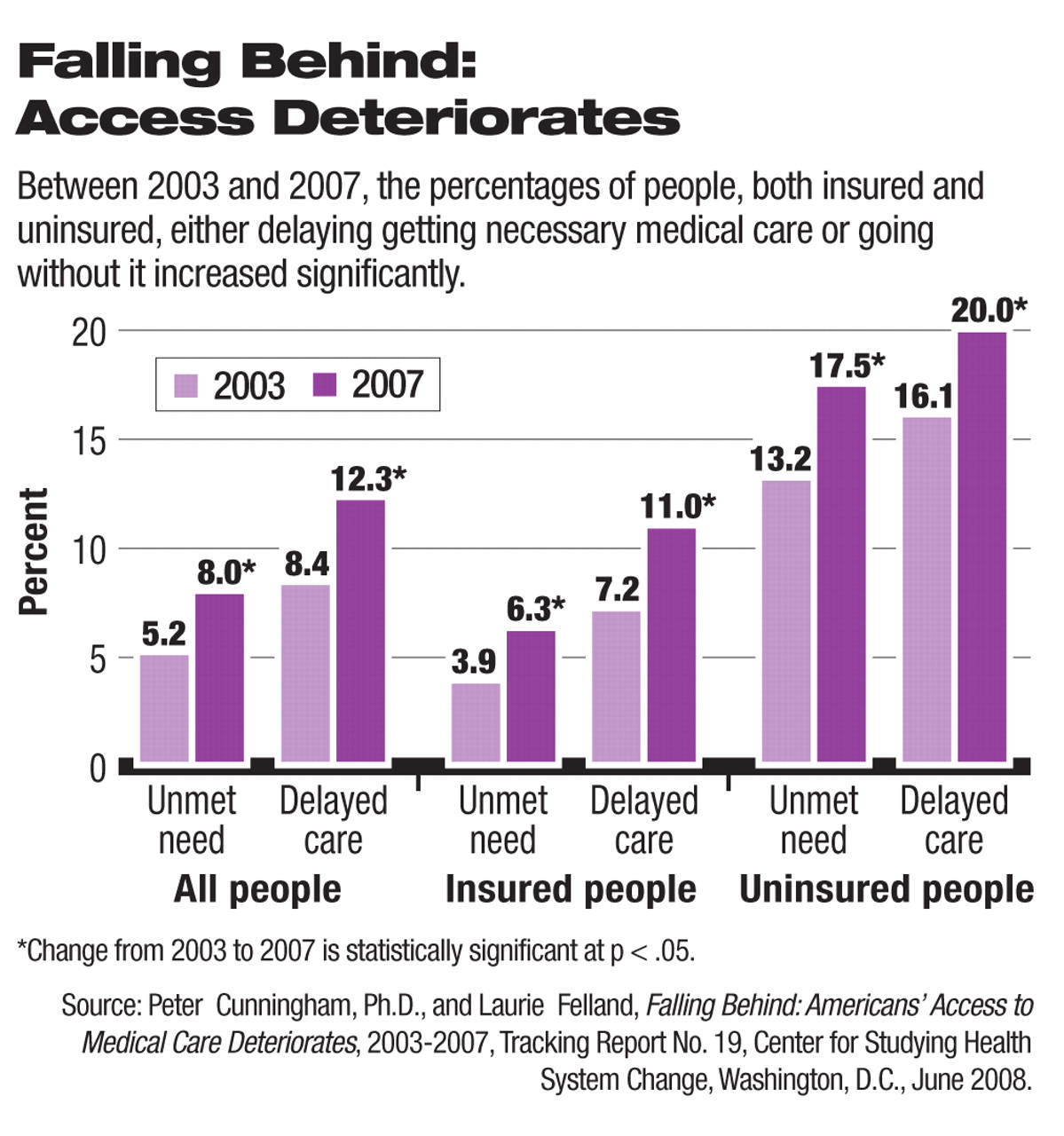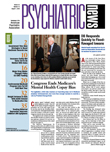In 2007, 1 in 5 people in the United States reported delaying or not getting medical care in the previous 12 months, according to a study by the Center for Studying Health System Change (HSC).
That is up significantly from 14 percent— or 1 in 7 people—in 2003, HSC says in the report “Falling Behind: Americans' Access to Medical Care Deteriorates, 2003-2007.”
In 2007, more than 23 million people reported going without needed care, and approximately 36 million people delayed care, for a total of about 59 million people reporting access problems. Many of these individuals cited cost as an obstacle to needed care, along with rising premiums of health plans and health system barriers.
“This is the most up-to-date snapshot of the access problems Americans are facing when seeking medical care, and it's not a pretty picture, especially for insured people, who increasingly are finding that the access to care once guaranteed by insurance is declining,” said Peter Cunningham, Ph.D., an HSC senior fellow and coauthor of the study, in a statement released with the report.
HSC is a nonpartisan health policy research organization funded in part by the Robert Wood Johnson Foundation, which funded the survey and the study.
The findings are from the HSC 2007 Health Tracking Household Survey and the Community Tracking Study Household Surveys from 1996-1997 and 2003. All three telephone surveys use nationally representative samples of the civilian, noninstitutionalized population. Sample sizes included about 60,000 people for the 1996-1997 survey, about 47,000 people for the 2003, and about 18,000 people for the 2007 survey. Response rates for the surveys were 65 percent in 1996-1997, 57 percent in 2003, and 43 percent in 2007. Although all three surveys are nationally representative, the samples for the 1996-1997 and 2003 surveys were largely clustered in 60 representative communities, while the 2007 survey was based on a stratified random sample of the nation.
Estimates of unmet need and delayed care were based on the following two questions: “During the past 12 months, was there any time when you didn't get the medical care you needed?” and “Was there any time during the past 12 months when you put off or postponed getting medical care that you thought you needed?” For those reporting either an unmet need or delayed care, follow-up questions were asked to determine why.
Uninsured people continued to face far greater access problems and were almost three times as likely to report going without care as insured people—17.5 percent versus 6.3 percent. However, insured people experienced a greater percentage increase in unmet medical needs compared with uninsured people—a 62 percent increase for the insured versus a 33 percent increase for the uninsured. As a result, ironically, the gap in access to care between insured and uninsured people narrowed slightly. In 2003, uninsured people were 3.4 times as likely to report going without care as insured people and 2.8 times as likely in 2007. These were among other key findings:
•
Access to care deteriorated the most for insured people in poor or fair health—14.2 percent reported going without needed care in 2007, up from 9 percent in 2003.
•
Uninsured people in poor or fair health reported the greatest problems getting needed care in 2007, with 1 in 4 reporting they went without needed care.
•
For people reporting an access problem, cost was the most frequently cited obstacle to care. In 2007, 69 percent of people who went without or delayed needed care cited worries about cost, compared with 65.2 percent in 2003.
•
The frequency with which insured people cited a health plan–related reason for going without or delaying care increased from 30.5 percent in 2003 to 39 percent in 2007. Most of the increase was attributable to people reporting more problems getting their health plan to pay for treatment or encountering doctors or hospitals that refused to accept their insurance.

